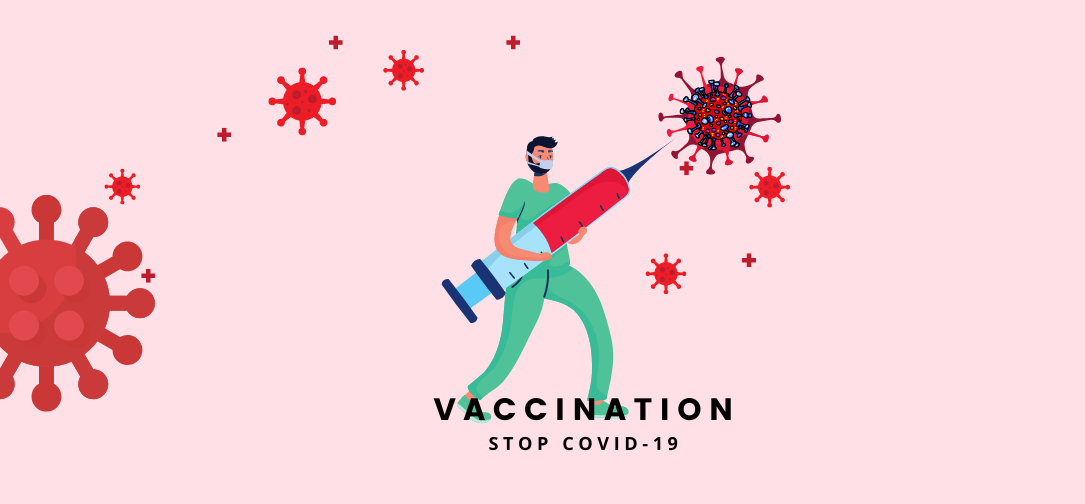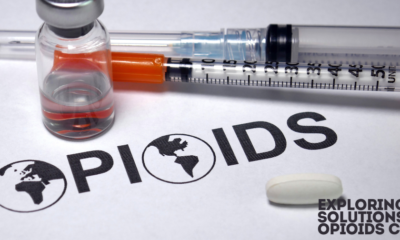Healthcare
The Long-Term Effects of COVID-19 Vaccination

Since the advent of COVID-19 vaccines in late 2020, this has played a pivotal role in curbing the spread of the virus, reducing severe disease, and preventing deaths. However, as the pandemic transitions into an endemic phase, questions regarding the long-term effects of these vaccines have become more pressing. This report delves into what is currently known about the long-term impacts of COVID-19 vaccination, exploring both the benefits and potential risks that have emerged from extensive global vaccination campaigns.
Long-Term Vaccine Efficacy
One of the most significant areas of research has been the durability of immunity provided by COVID-19 vaccines. Studies have shown that while vaccines remain highly effective in preventing severe disease and death, their efficacy against infection wanes over time. This decline in effectiveness has been particularly noted with new variants of concern, such as Delta and Omicron, which have demonstrated some ability to evade immunity.
A meta-analysis conducted by researchers highlighted that the effectiveness of a three-dose vaccine regimen against long COVID was approximately 69%. However, for individuals who had received only two doses, the efficacy dropped to 37%. This reduction underscores the importance of booster doses in maintaining protection not just against acute infection but also against the long-term consequences of COVID-19.
Impact on Long COVID
Long COVID, characterized by a range of persistent symptoms such as fatigue, cognitive impairment, and respiratory issues, has emerged as a significant concern. Vaccination has been shown to reduce the risk of developing long COVID, though the degree of protection varies. For instance, studies suggest that receiving a full vaccination series before contracting COVID-19 significantly lowers the chances of experiencing long-term symptoms. The risk reduction is more pronounced in individuals who receive booster doses, especially when facing more recent variants like Omicron.
Despite these benefits, the protection against long COVID is not absolute. Fully vaccinated individuals still report long COVID symptoms, albeit at lower rates than those unvaccinated. This has led experts to advocate for a more standardized definition of long COVID to improve diagnosis and treatment, as well as to facilitate more accurate research on vaccine effectiveness.
Adverse Effects and Safety Concerns
The safety profile of COVID-19 vaccines has been a subject of intense scrutiny, particularly as large-scale vaccination campaigns have been rolled out worldwide. Most adverse effects are mild and short-lived, such as soreness at the injection site, fever, and fatigue. However, there have been reports of more serious but rare side effects.
The National Academies of Sciences, Engineering, and Medicine released a comprehensive review that identified several potential harms associated with COVID-19 vaccines. These include myocarditis, particularly in younger males, and other immune-mediated conditions. However, it is crucial to note that these adverse events are rare, and the benefits of vaccination in preventing severe disease and death far outweigh the risks.
Another large study examining over 99 million vaccinated individuals worldwide identified two new but very rare side effects: transverse myelitis and acute disseminated encephalomyelitis. Despite these findings, the overall safety profile of the vaccines remains robust, with these rare adverse effects occurring in only a small fraction of vaccinated individuals.
Vaccine-Induced Immunity vs. Natural Immunity
There has been considerable debate regarding the comparative benefits of vaccine-induced immunity versus natural immunity acquired through infection. Research has shown that vaccine-induced immunity is more predictable and generally offers broader protection against severe disease, especially when boosted with additional doses.
However, studies also indicate that natural immunity can provide strong protection, particularly against reinfection with the same variant. The hybrid immunity acquired from both vaccination and previous infection offers the most robust protection, combining the benefits of both natural and vaccine-induced responses.
This understanding has led to discussions about the necessity and timing of booster doses, particularly for individuals who have recovered from COVID-19. The consensus is that boosters remain beneficial, especially in light of emerging variants that may partially evade immunity.
Long-Term Monitoring and Future Research
Given the unprecedented scale of COVID-19 vaccination efforts, long-term monitoring of vaccine recipients is essential. Surveillance systems, such as the Vaccine Safety Datalink in the United States, continue to track adverse events and vaccine effectiveness over time. These efforts are crucial for identifying any late-emerging side effects and for understanding how long protection lasts.
Future research is expected to focus on several key areas: the long-term durability of immunity, the effectiveness of different vaccine combinations (including bivalent and multivalent vaccines), and the impact of vaccination on different population subgroups, such as immunocompromised individuals and children.
Additionally, there is a growing need for studies on the socioeconomic impacts of long COVID and how vaccination might mitigate these effects. As the world adapts to living with COVID-19, understanding the full spectrum of vaccine impacts will be vital in guiding public health policies and vaccination strategies.
Conclusion
The long-term effects of COVID-19 vaccination are still being unraveled as more data becomes available. While vaccines have proven to be a powerful tool in controlling the pandemic, they are not without limitations. The waning of immunity, the need for booster doses, and the rare but serious side effects are areas of ongoing concern and investigation. Nevertheless, the benefits of vaccination especially in preventing severe disease and death remain overwhelmingly positive.
As research continues, it will be crucial to maintain transparency, adapt vaccination strategies based on emerging evidence, and continue to prioritize global access to vaccines. This balanced approach will be key to navigating the next phase of the pandemic and beyond.
-

 Press Release5 days ago
Press Release5 days agoClinical Trials Market Set for Robust Growth, Driven by Drug Development Surge and Digital Innovation
-

 Press Release6 days ago
Press Release6 days agoGreen Bio Chemicals Market Poised for Sustainable Growth amidst Global Shift to Eco-Friendly Alternatives by 2035
-

 Press Release6 days ago
Press Release6 days agoIndustrial Boiler Market Expected to Surpass USD 24.4 Billion by 2035 Amid Growing Demand for Energy Efficiency and Industrialization
-

 Business7 days ago
Business7 days agoHow Managed IT Solutions Help Small Teams Compete at Enterprise Scale
-

 Press Release6 days ago
Press Release6 days agoFill-Finish Pharmaceutical Contract Manufacturing Market Expected to Flourish Amid Biopharmaceutical Boom and Global Outsourcing Trend by 2035
-

 Press Release6 days ago
Press Release6 days agoPreventive Vaccines Market to Witness Strong Growth by 2035
-

 Press Release6 days ago
Press Release6 days agoPet Food Nutraceutical Market Set for Robust Expansion Amid Rising Demand for Pet Wellness by 2035
-

 Press Release5 days ago
Press Release5 days agoWaterproof Structural Adhesives Market: A Comprehensive Study Towards USD 10.3 Billion in 2035






























